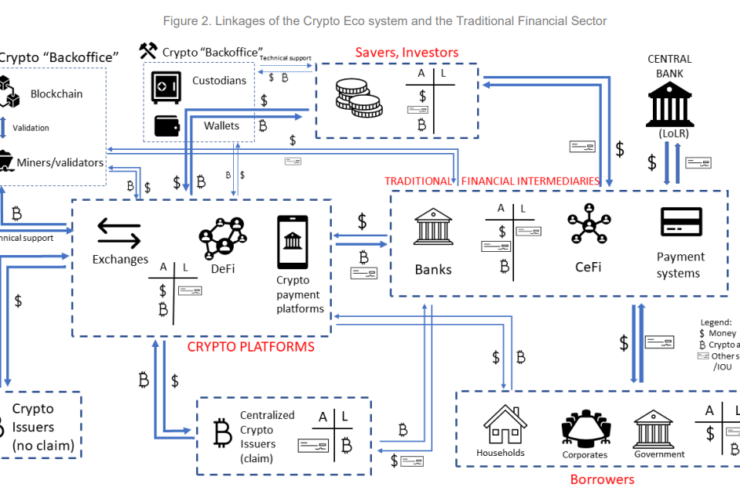A working paper published by the International Monetary Fund (IMF) proposed a count vulnerabilities and potential policy responses for the crypto sector.
On Sept. 29, the IMF published a working paper titled “Assessing Macrofinancial Risks from Crypto Assets.” Within the paper, authors Burcu Hacibedel and Hector Perez-Saiz proposed a crypto-risk assessment matrix (C-RAM) for countries to spot indicators and triggers of potential risks in the sector. The matrix also aims to summarize regulators’ potential responses to the risks it could identify.
The matrix includes a three-step approach. The first step includes using a decision tree to assess crypto macro criticality or the potential to affect the macro-economy. The next step involves looking at indicators comparable to those used to monitor the traditional financial sector. The last step covers the global macro-financial risks affecting countries’ systemic risk assessment.

For example, the authors applied C-RAM to identify risks in El Salvador, a country that made Bitcoin (BTC) a legal tender in September 2021. According to the paper, El Salvador’s use of BTC poses market, liquidity and regulatory risks. The authors wrote:
“The use of crypto assets in El Salvador could also be assessed as macrocritical as recent regulatory and legal changes entail the risk of substantial cryptoization in the country, undermining financial stability and affecting large remittances and other capital inflows.”
The IMF has consistently discouraged El Salvador from adopting Bitcoin. In January 2022, the IMF urged the Central American country to drop Bitcoin’s legal tender status. According to the IMF, using BTC as legal tender carries “large risks” in areas such as financial stability, financial integrity and consumer protection.
Related: IMF’s CBDC push gets feedback from the crypto community — ‘No one wants this’
As crypto rapidly develops, regulators are playing catch up on putting in place responses to potential risks in the nascent space. On Sept. 7, the IMF and the Financial Stability Board collaborated on a joint paper containing policy recommendations, at the request of the Indian G20 presidency. The paper combined standards and consolidated recommendations for various risks associated with activities in crypto.
Magazine: Bitcoin’s ‘Great Accumulation,’ Binance.US resumes fiat withdrawals, and other news: Hodler’s Digest






















Comments (No)